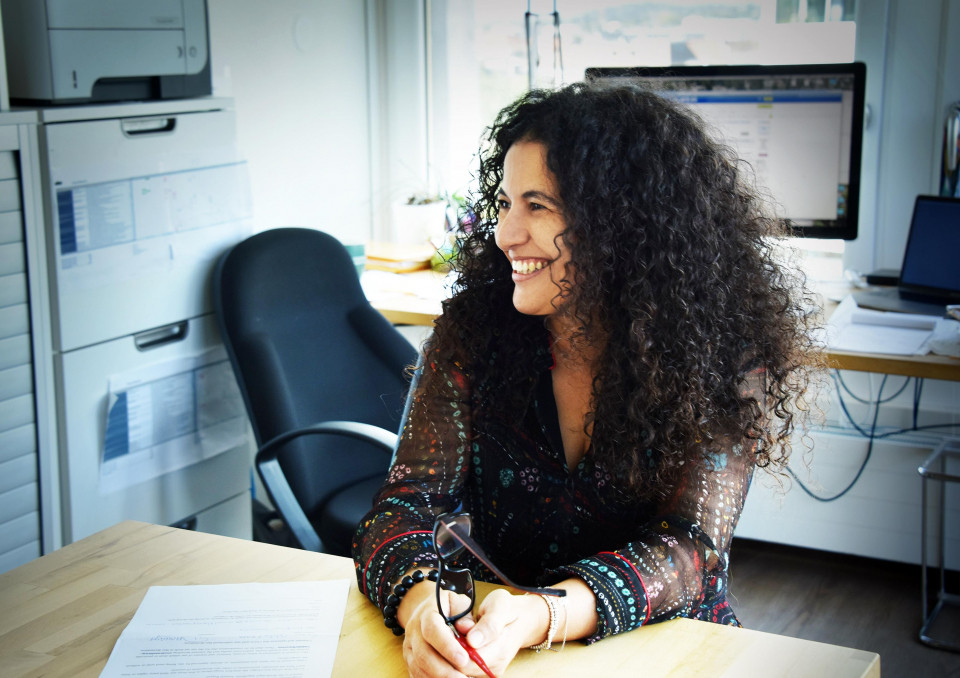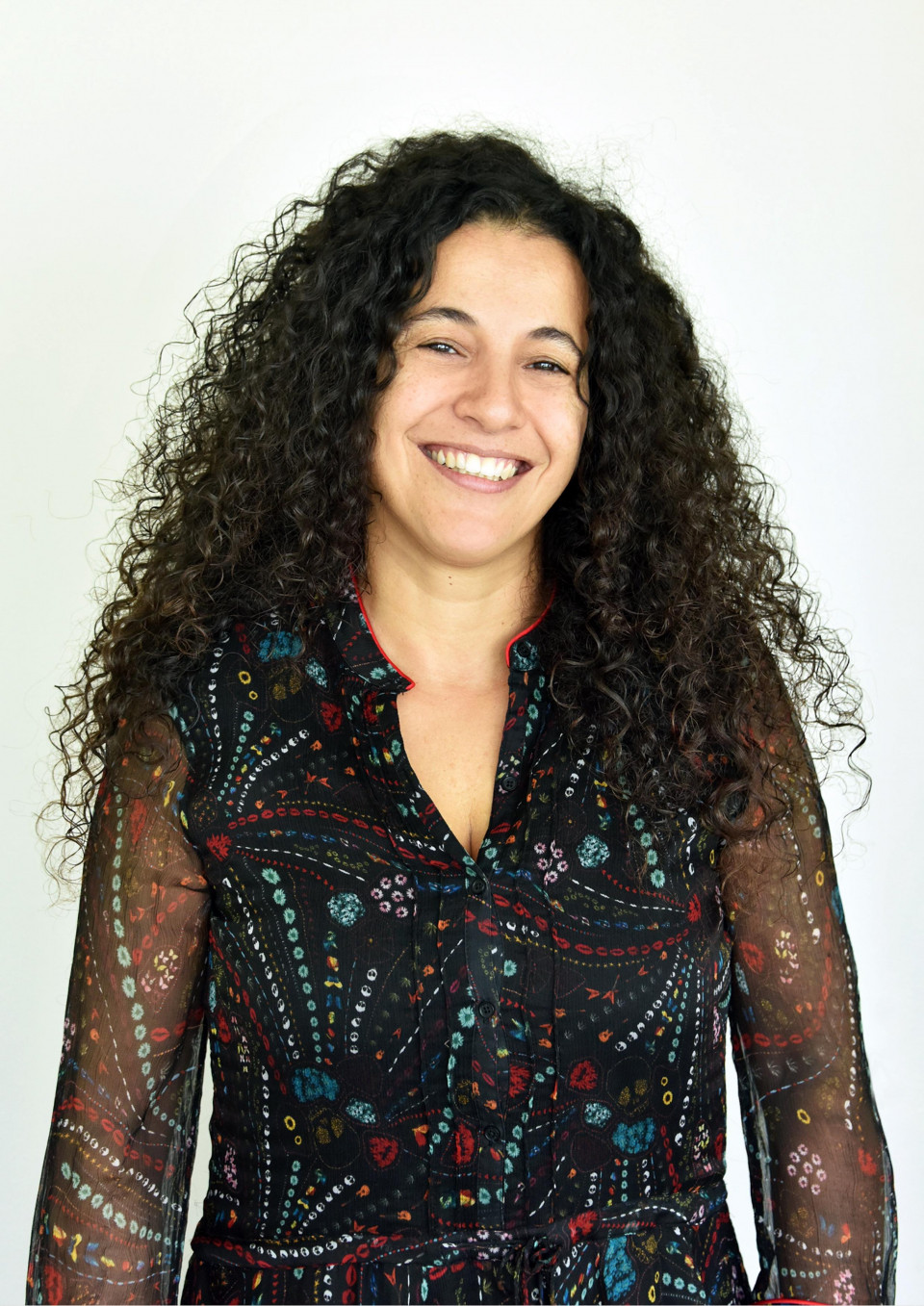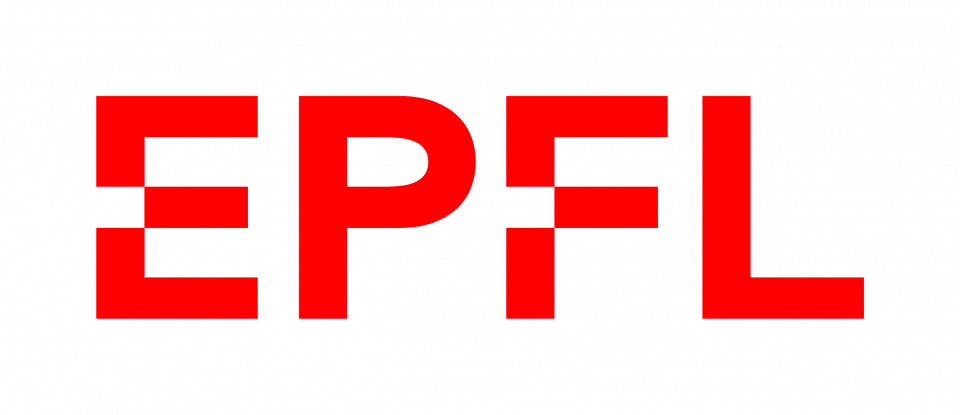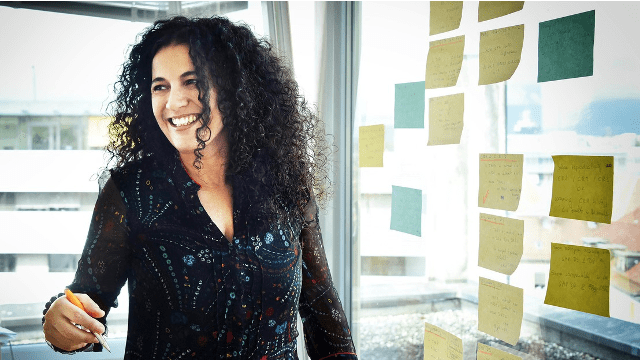After obtaining her PhD from EPFL in 2005, Madiha Derouazi embarked on a venture that few people believed in: creating a vaccine to treat cancer. Yet she went on to develop her technology, and founded a business – AMAL Therapeutics – to market it.
Madiha Derouazi was selected for the European Inventor Award last year and will receive an Alumni Award from EPFL at this year’s Master’s graduation ceremony. We spoke with this entrepreneur who dared to follow her convictions.
Where did you grow up, and what brought you to EPFL?
I grew up in Geneva and studied biology at the University of Geneva, before enrolling in a Master’s program at Technische Universität Berlin in 1995. Biotechnology was an emerging field at the time and TU Berlin was one of the leading schools in the subject, so I decided to go there – even though I didn’t speak a word of German!
I first came to EPFL to conduct my Master’s research at Florian Wurm’s laboratory. It was part of the chemistry department, since life sciences weren’t a discipline yet at EPFL. My research involved studying recombinant proteins, which turned out to be really useful later for developing a vaccine. Thanks to Florian, I was able to get an internship at Pfizer in the US. Then I went back to EPFL for my PhD.
You initially intended to pursue a career in academia but ended up starting your own business. What prompted you to make the switch?
It’s true, as a PhD student I thought I’d continue my career in research and teaching. I did a postdoc at CNRS in France and then returned to the University of Geneva in 2009 as a research assistant under Prof. Pierre-Yves Dietrich. His lab was a great place for conducting my research because I could work with not just Pierre-Yves, who’s an expert in applied clinical oncology, but also Paul Walker, who co-headed the lab and is specialized in basic immunology.
In 2011, I wanted to apply for a Swiss National Science Foundation grant, and for that I needed the backing of the University of Geneva’s committee for academic career candidates. But the committee felt my research on vaccine development was too applied and refused my request. That’s when my dreams of an academic career evaporated and I turned to entrepreneurship, founding AMAL Therapeutics shortly afterwards.

Madiha Derouazi created the start-up AMAL Therapeutics © Liliroze
Was it a difficult transition?
I followed the path most entrepreneurs follow in this part of Switzerland. I took part in Venturelab training and received funding from both the Foundation for Technological Innovation and Venture Kick. I also pitched at the Startup Champions Seed Night when it was first held in 2012. There are a lot of programs for startups in this region and sometimes it can be hard for business founders to determine which are the most relevant for them, not to mention which people genuinely want to help and which are only looking out for their own interests. You’ve got to have some common sense. Switzerland’s startup support system isn’t perfect, but overall it’s very good.
When it came time to raise seed capital, I contacted investors directly. That meant bringing my technology out of the research lab in order to patent it and set up a company. One of the biggest challenges for biotech startups in this region is getting access to the equipment they need to develop their business. Basel and Zurich have many facilities, but it’s a lot harder here. I was lucky in that I could use the equipment at the Geneva Foundation for Medical Research. It was just about the only local site with the right equipment back in 2012.
Also, I was one of just a handful of female entrepreneurs in a field dominated by men. I had to put up with comments that were sometimes fairly paternalistic, with some people suggesting I’d never make it on my own. Today, it’s mostly women wanting to start their own business who come to ask me for advice. They face a lot of the same challenges, and that can undermine their confidence.
Fundraising was hard at first because few people believed in immunotherapy.
Madiha Derouazi
Most vaccines are intended to prevent a disease from developing, but yours acts as a treatment. How does it work?
The vaccine uses an approach that’s now called immunotherapy. Today we know that immunotherapy delivers benefits to patients, but that hadn’t yet been clinically proven when I founded AMAL Technologies. The vaccine is designed to train the immune system of cancer patients to recognize and fight tumor cells. It’s known as a therapeutic vaccine. These kinds of vaccines aren’t unique to oncology – they’re also used against Alzheimer’s, infectious diseases like HIV and other conditions.
Fundraising for AMAL was hard at first because few people believed in immunotherapy. Between 2013 and 2015, all the large pharmaceutical companies that were exploring this avenue reported that their phase 3 clinical trials had failed. But with hard work and determination, I was able to sign up some investors.
New businesses face numerous challenges as they grow – managing their finances and staff, marketing their products, and so on. How did you learn these skills coming from a scientific background?
This broad perspective of a business’s operations and the opportunity to learn about so many different functions are precisely what makes entrepreneurship so unique. To succeed as a CEO, you have to be able to adapt to different environments and manage people who have the skills you don’t.
When I closed the Series A funding round for AMAL in 2016 I was still working at the lab. I had to juggle that along with filing the patent application and coordinating various financial and contractual matters. I basically played it by ear and learned as I went along. To give an example, when I was trying to raise seed capital and investors asked to see the company’s financial statements, I sent them the company’s bank statements dating back to when it was founded! The investors found that pretty funny. That’s when I realized it was time to hire an accounting firm.
Managing people has always been one aspect of the job I enjoy. The group I worked with at AMAL was incredible. Hiring staff was the hardest part – choosing people who have the right skillset and would fit in well with the rest of the team. We had 12 employees when AMAL was acquired in 2019 and now the firm has 22 employees, so it’s grown considerably.
To succeed as a CEO, you have to be able to adapt to different environments and manage people who have the skills you don’t.
Madiha Derouazi
In 2019, the very first patient in your KISIMA-01 clinical trial was vaccinated. Was that the most memorable moment of your career?
Yes, and to be perfectly honest, I cried. I had planned to fly to the US to be there in person when the shot was administered. That’s not usually done, but everyone involved – including the patient – was on board. Unfortunately, there was a measles outbreak at the site, and because I hadn’t had the required booster, I couldn’t be physically present. However, the principal investigator kept me updated and when I got the text message late at night that the vaccine had been administered, I was overcome with emotion.
I left AMAL recently, a few years after it was acquired, but the latest data on the vaccine, from the 2021 European Society for Medical Oncology Congress, show that it’s well-tolerated and is associated with an immune response that can penetrate a tumor. So we know the underlying mechanism works. The company has continued with the KISIMA-01 clinical trial on metastatic colorectal cancer and has recently started a second trial, KISIMA-02, on pancreatic cancer. Now we just need to wait for the results of those trials.

Madiha Derouazi © Liliroze
A few months after that first clinical trial, AMAL was acquired by Boehringer Ingelheim for €425 million – the biggest biotech takeover in 2019. Do you feel that the large price tag is telling?
Yes. I’m very proud of this outcome because it had all been an uphill struggle. I started out on my own and had to learn everything as I went – from fundraising and legal affairs to putting together the right team. And I had to always keep a positive attitude despite the setbacks. In the beginning, people said I should give up and go back to the lab. However, what’s most meaningful for me in all this isn’t the transaction amount, but the prospect of one day seeing the vaccine work following the clinical trials.
After devoting years of your life to developing a vaccine platform and launching clinical trials, it’s not easy to just turn the page. I stayed on the AMAL management team from 2019 to 2022 in order to make sure the transition went smoothly for our staff and that our business would continue to operate independently within the larger corporation.
Today you’re the CEO of Speransa Therapeutics, which is developing a second-generation Covid vaccine. How did this come about?
The University of Tübingen had developed a vaccine platform with funding from the German government, and Boehringer Ingelheim was the company working with the university to take it to market. What we want to do is expand the platform so that it can be used for other pandemics beyond Covid. The company’s name, Speransa, is actually a nod to AMAL, which means “hope” in Arabic. I became its CEO in June 2021 on top of my position at AMAL. It was a busy time! We administered the first doses of our Covid vaccine to patients in June 2022.
I plan to step down from Speransa at the end of 2023 and will embark on a new business venture early next year. The details are still under wraps, but it’ll take me out of my comfort zone.
Swiss entrepreneurs aren’t sufficiently equipped to speak with investors and pharmaceutical companies.
Madiha Derouazi
You’ve said you’d like to introduce a university course focused specifically on drug development. Do you feel concrete instruction like this is missing in today’s universities?
In the US, PhD students and postdocs can take part in large-scale research programs funded by the National Institutes of Health that include clinical trials. This gives young scientists hands-on experience with the different phases of drug development, the cost of each one, and the procedures for working with and meeting the requirements of the US Food and Drug Administration. Nothing like that exists here in Switzerland, so entrepreneurs end up learning about those things very late in the game. Scientists at Swiss research centers have no idea how much money they have to raise at each stage of business nor a good overview of all the different steps entailed in drug development. In short, Swiss entrepreneurs aren’t sufficiently equipped to speak with investors and pharmaceutical companies.
Of course, there are some classes on drug development in Switzerland, but they’re usually not given by former entrepreneurs, and nothing can replace that kind of first-hand experience. Many of the questions I receive from people seeking to start their own businesses are related directly to these issues – I would’ve loved to have answers to these questions when I was starting out! I currently teach some classes on entrepreneurship and drug development at universities and other organizations including EPFL, the Faculty of Pharmaceutical Science at the University of Geneva, and FutureHealth Lausanne. But I’d like to go further and introduce a full 20-hour course for PhD students and postdocs who want to either start their own company or just better understand their career prospects beyond the research lab.
Did you have time to enjoy campus life at EPFL during your PhD?
EPFL is a fantastic school and I imagine there are few like it in the world. And campus life was wonderful. I was a regular at the sports center, for rock climbing and beach volleyball. I also had the opportunity to watch EPFL grow through the addition of the School of Life Sciences. I’m still in touch with many of the people I met at EPFL, especially the other PhD students. My research involved running experiments on the cell cycle and I often had to stay at the lab until 11 pm or midnight. Sometimes we’d pop over to the Sat for happy hour before going back to the lab.
Is there a message you’d like to give to today’s EPFL students who are considering starting their own business?
Get the best advice you can, but don’t think you have to follow it word for word. When you’re an entrepreneur, you need to do things your way.
BIO
2000 - Obtained a Master’s in biotechnology from Technische Universität Berlin
2005 - Obtained a PhD in biotechnology from EPFL
2012 - Founded Amal Therapeutics
2019 - Sold Amal Therapeutics to Boehringer Ingelheim for €425 million
2021 - Appointed CEO of Speransa Therapeutics

Comments0
Please log in to see or add a comment
Suggested Articles



